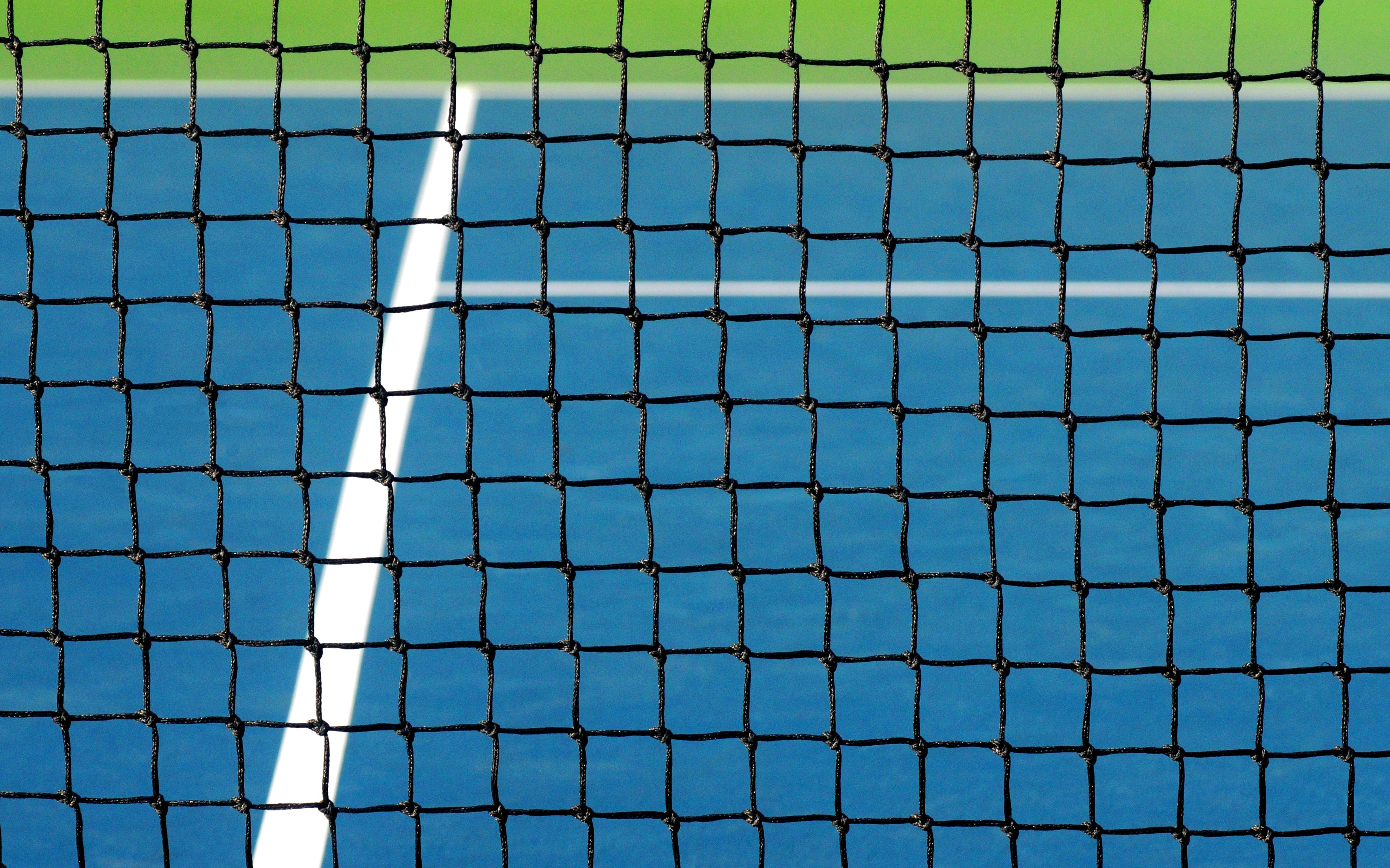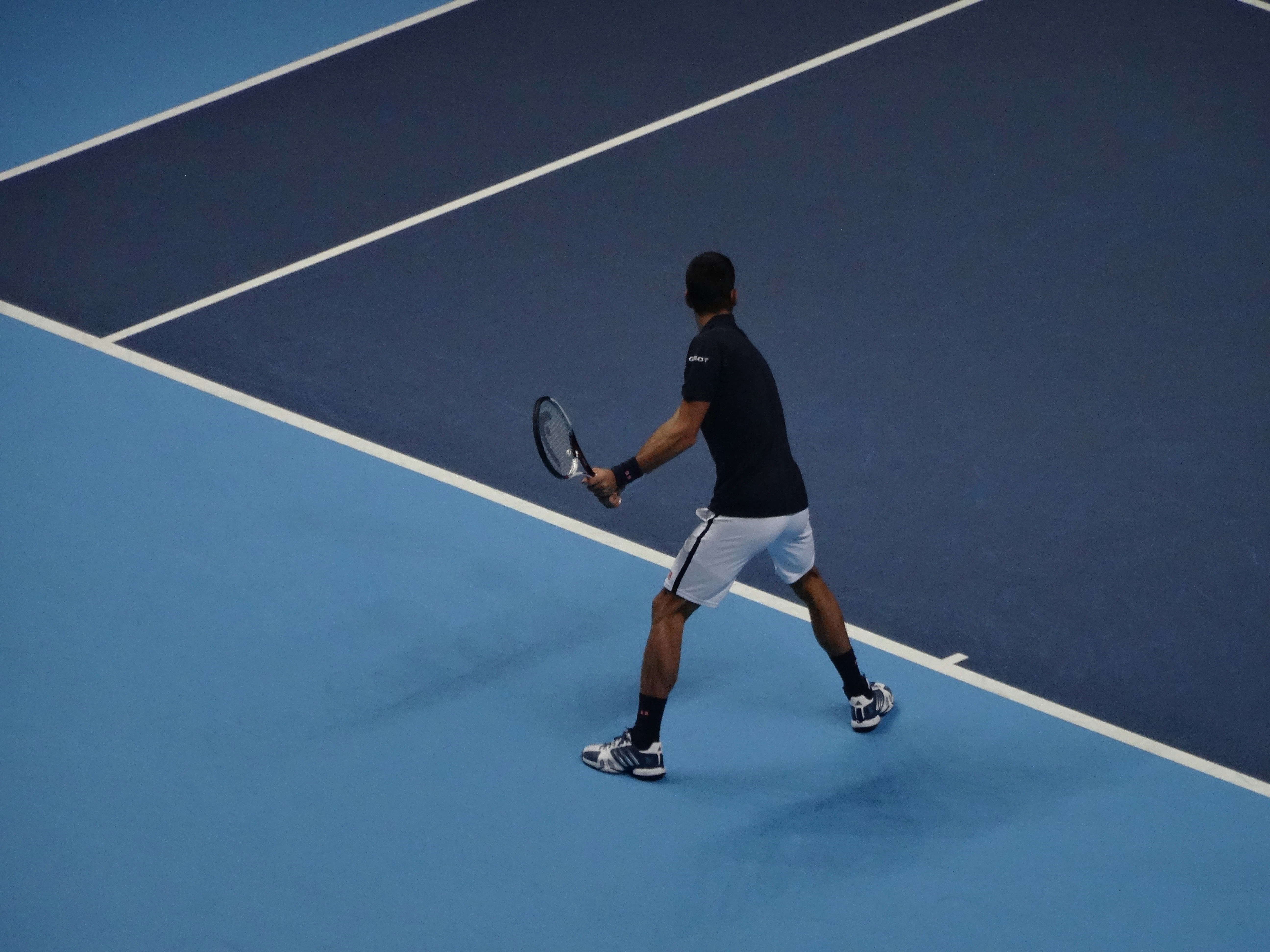Have you ever wondered if your child has a natural talent for tennis? With so many young athletes discovering their passion for the sport, it’s important to identify their potential early on. While it may be challenging to determine their innate abilities, there are certain signs that can help you recognize their gift. From their coordination and athleticism to their enthusiasm and dedication, assessing these indicators could provide valuable insights into your child’s talent for tennis. In this article, we will explore various ways to gauge your child’s natural aptitude for the sport, helping you better understand their potential and guide them towards their passion.
Physical Skills
Hand-eye coordination
Hand-eye coordination is an essential physical skill in tennis, as it allows you to track the ball’s movement and accurately position your racket for a successful shot. If you have good hand-eye coordination, you’ll be able to react quickly to the ball and make precise contact. This skill is crucial for both serving and returning the ball effectively.
Agility
Agility is another important physical skill in tennis. It enables you to move quickly and change direction with ease, allowing you to reach shots on the court efficiently. A high level of agility helps in both offensive and defensive play, allowing you to cover the court effectively and maintain a strong position during rallies.
Strength
Strength plays a significant role in tennis, as it helps generate power in your shots. Having strong muscles, particularly in the core, arms, and legs, allows you to produce force when hitting the ball, resulting in powerful serves and groundstrokes. Additionally, strength also aids in stability and balance, which are crucial for maintaining control during intense rallies.
Speed
Speed is a vital physical skill in tennis, as it allows you to cover the court quickly and retrieve shots that may seem out of reach. The ability to sprint and change direction swiftly gives you an advantage in both offensive and defensive scenarios. By being faster than your opponent, you can reach more balls and maintain your position on the court, increasing your chances of winning points.
Flexibility
Flexibility is instrumental in tennis, as it enables you to move fluidly and avoid injuries. Having good flexibility allows you to perform a wide range of shots, such as reaching for low balls or executing powerful serves. It also aids in recovery after intense movements, reducing the risk of muscle strain or joint injuries. Regular stretching and specific exercises can improve flexibility, enhancing your overall performance on the court.
Motor Skills
Gross motor skills
Gross motor skills involve the coordination of large muscle groups, such as those used in running, jumping, and striking a ball. In tennis, gross motor skills are important for executing powerful shots, covering the court quickly, and maintaining balance during rallies. The development of good gross motor skills is essential for overall athleticism and success on the tennis court.
Fine motor skills
Fine motor skills refer to the precise control of small muscle groups, particularly those in the hands and fingers. In tennis, fine motor skills are crucial for delicate shots such as drop shots or volleys, as well as for generating spin on the ball. The ability to make accurate adjustments and manipulate the racket precisely can greatly impact shot placement and overall strategy during a match.
Interest and Passion
Enthusiasm for tennis
Having a genuine enthusiasm for tennis is a key indicator of natural talent. If you find yourself always eager to play and excited about practicing and improving, it shows that you have a love for the sport. This enthusiasm will drive you to invest more time and effort into honing your skills, ultimately leading to better performance on the court.
Dedication and commitment
Tennis requires dedication and commitment to achieve success. If you consistently show up for practice, put in the required effort, and maintain a strong work ethic, it indicates natural talent. The willingness to go the extra mile, even when faced with challenges and setbacks, demonstrates a level of commitment that can greatly contribute to your development as a talented tennis player.
Desire to learn and improve
A strong desire to learn and improve is a fundamental attribute of a naturally talented tennis player. When you have an inherent curiosity and hunger for knowledge about the game, you actively seek opportunities to develop your skills and broaden your understanding. The drive to constantly improve and expand your abilities is an excellent sign of your potential talent in tennis.
Perseverance and Work Ethic
Ability to handle setbacks
In tennis, setbacks are inevitable. It is how you handle these setbacks that truly showcases your natural talent. Being able to bounce back from losses, mistakes, or injuries with resilience and determination speaks to your mental strength and ability to overcome challenges. The capacity to analyze what went wrong, learn from it, and move forward strongly demonstrates your natural talent in tennis.
Willingness to put in time and effort
Tennis is not a sport that can be mastered overnight. It requires consistent practice and dedication to honing your skills. If you willingly invest significant amounts of time and effort into practicing, conditioning, and improving your game, it demonstrates a natural talent for the sport. A strong work ethic and the ability to prioritize tennis training indicate your potential for success.
Consistency in practice
Consistency is key in tennis, and a naturally talented player will understand the importance of regular practice. Consistently showing up, putting in the work, and maintaining a disciplined practice schedule highlight your dedication and passion for the sport. The ability to adhere to a consistent training routine is a clear indication of your natural talent in tennis.
Coachability
Openness to instruction
Coachability refers to your willingness to listen, learn, and apply instructions from your coach. An inherently talented tennis player will be open to receiving guidance, instructions, and feedback from their coach. Being receptive to new ideas and implementing them into your game showcases your coachability and your potential to grow and develop as a player.
Ability to learn and apply new techniques
Being able to learn new techniques and apply them effectively in your game is a sign of inherent talent in tennis. If you quickly grasp new concepts, adapt your playing style accordingly, and demonstrate an understanding of when and how to incorporate these techniques into your game, it is a testament to your natural ability to learn and apply tennis strategies.
Receptiveness to feedback and criticism
Receiving feedback and criticism is essential for personal and skill development in tennis. A naturally talented player welcomes constructive criticism and views it as an opportunity for growth. The ability to accept feedback with an open mind, analyze your performance objectively, and make necessary improvements showcases your coachability and natural talent in tennis.
Observation and Analysis
Natural anticipation and reaction
Tennis requires the ability to anticipate your opponent’s shot and react quickly. Natural talent is often evident when you display a strong sense of anticipation, consistently positioning yourself correctly before your opponent hits the ball. Your natural reaction time and reflexes are key indicators of your ability to read the game and respond effectively.
Ability to strategize and adapt
Tennis involves strategy and the ability to adapt to different game situations. A naturally talented player possesses a high level of strategic thinking and the capacity to analyze and adjust their tactics during a match. This includes making informed decisions regarding shot selection, court positioning, and varying game plans based on the opponent’s strengths and weaknesses.
Tactical understanding of the game
Understanding the tactical nuances of the game is a crucial aspect of natural talent in tennis. A talented player has a deep comprehension of the various playing styles, strategies, and patterns of play. This comprehensive understanding allows you to make sound game decisions, effectively exploit your opponent’s weaknesses, and adapt your game plan to gain a competitive advantage on the court.
Competitive Nature
Desire to win
A strong desire to win is a common characteristic of naturally talented tennis players. The drive to compete and the hunger for victory motivate you to give your best effort in every match. The determination to go the extra mile, even in the face of adversity, is a clear sign of your competitive nature and potential talent in tennis.
Resilience in competitive situations
Competitive situations in tennis can be mentally and physically demanding. A naturally talented player possesses the resilience to handle pressure and setbacks during matches, remaining focused and composed. The ability to stay calm under pressure, bounce back from setbacks, and maintain a strong competitive spirit demonstrates your natural talent in tennis.
Composure under pressure
Pressure moments in tennis can be mentally challenging, and keeping one’s composure is a marker of natural talent. Maintaining a calm and composed demeanor during critical points or close matches allows you to make rational decisions, execute shots accurately, and perform at your best. Your composure under pressure is a clear indicator of your natural talent and mental strength in tennis.
Energy and Endurance
High levels of stamina
Tennis requires sustained physical effort and high levels of stamina. Natural talent is evident when you display the endurance to maintain a high level of play throughout matches and tournaments. Having the stamina to endure long rallies, play multiple matches in a day, and continually perform at your best separates naturally talented players from others.
Ability to sustain performance for extended periods
Consistently performing at a high level over extended periods is a sign of natural talent in tennis. This includes maintaining focus, intensity, and execution of shots throughout matches and tournaments. A naturally talented player can sustain their performance, both physically and mentally, without experiencing significant drops in their game quality.
Recovery time between matches
Efficient recovery between matches is crucial for maintaining optimal performance in tennis. Natural talent is often reflected in the ability to bounce back and be physically and mentally prepared for subsequent matches. The capacity to recover quickly, manage fatigue, and restore energy levels enables you to consistently compete at your best, even during demanding tournament schedules.
Recreational Performance
Outstanding performance in casual matches
Naturally talented tennis players often stand out in casual matches among friends or peers. Their superior skills, shot placement, and overall performance distinguish them from others on the court. Excelling in casual matches is a strong indicator of your natural talent and potential for success in more competitive settings.
Dominance over peers in tennis activities
When participating in tennis activities with peers, a naturally talented player tends to display dominance. Whether it’s winning practice matches, performing better in drills, or consistently outperforming others during training sessions, your ability to stand out and achieve superior results showcases your natural talent and potential for greatness in the sport.
Achievement and Progress
Consistent improvement in skill level
One of the clearest indicators of natural talent in tennis is consistent improvement in your skill level over time. Regardless of your starting point, a naturally talented player will demonstrate steady progress as they invest time and effort into practicing and refining their game. This consistent improvement serves as evidence of your inherent ability to excel in tennis.
Recognition and success in tournaments
Achieving recognition and success in tournaments is a significant indication of natural talent in tennis. If you consistently perform well and secure victories against formidable opponents, it demonstrates that you possess the skills and mental fortitude to excel at a competitive level. Recognition from coaches, players, and tournament organizers further validates your natural talent and potential.
Progression in rankings
A player’s progression in rankings serves as a tangible measure of their natural talent in tennis. As you climb the rankings, surpassing opponents and consistently competing against higher-level players, it becomes evident that your skills, dedication, and talent are propelling your success. Progressing through the ranks validates your natural talent and the potential for further growth and achievement.





